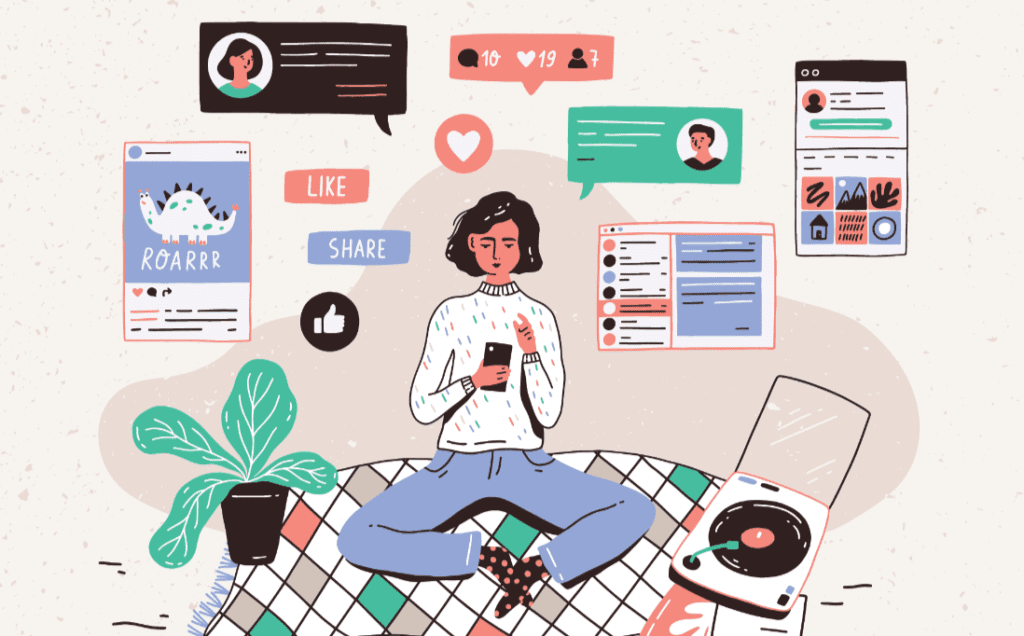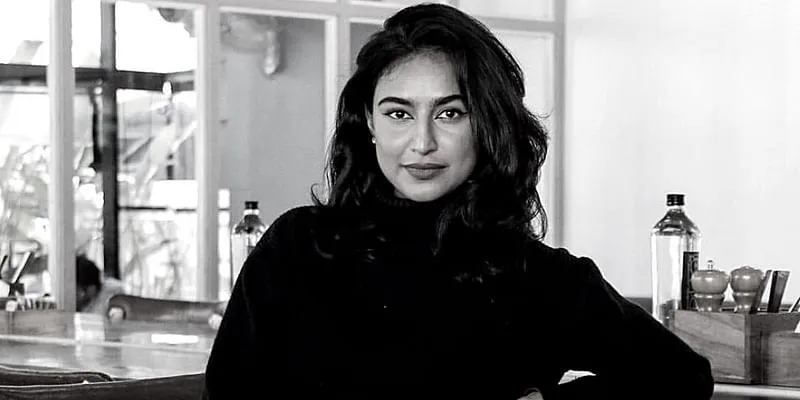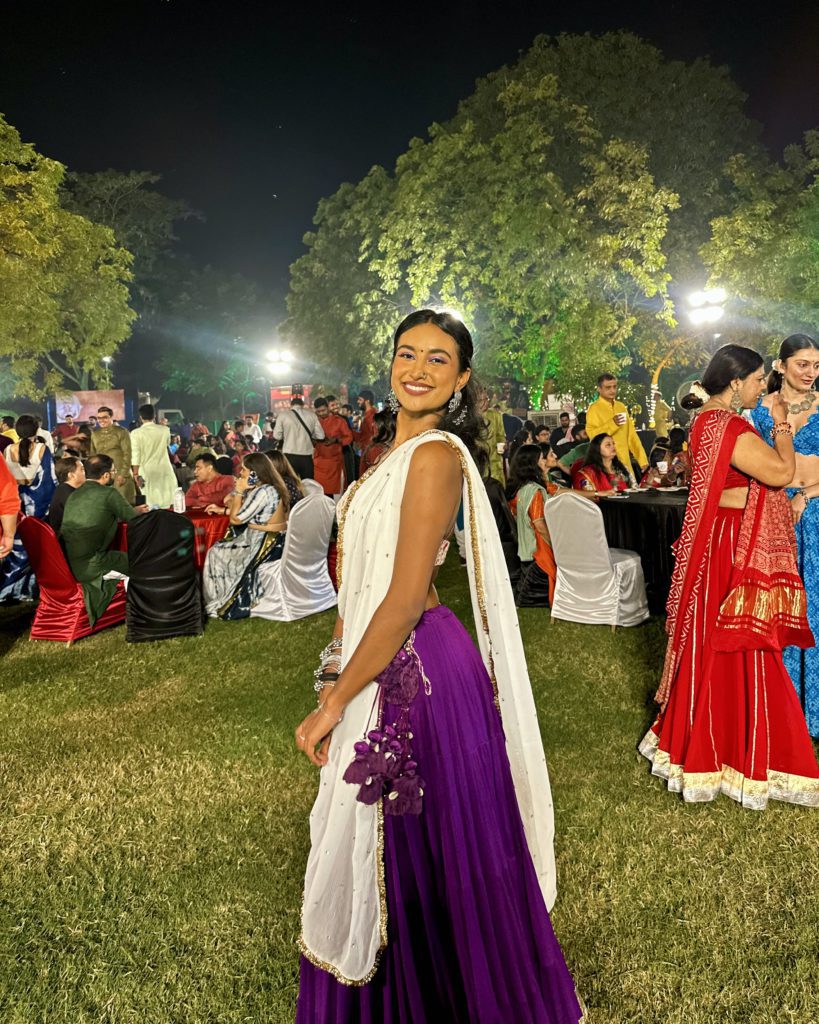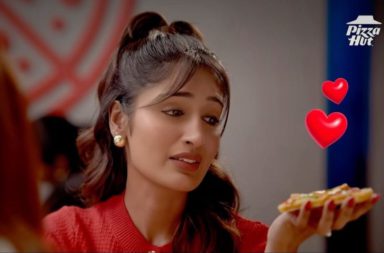Social Media is a part of almost everyone’s lives today. Individuals of every age are doomscrolling on some or the other social media platforms now. Social media has become a lifestyle, rather than it being an entertainment portal. From memes to viral trends, it’s a whirlwind of content that’s totally consumed us. With this boom of social apps, one of the major concerns is its “Impact on Mental Health.” On the occasion of Social Media Day, we must be mindful of how it also affects our mental well-being.

The Rise Of Social Media
Over the years, social media has skyrocketed from being a niche platform to a global giant. The digital landscape transformed with the advent of smartphones and platforms like Facebook, TikTok, X, and Instagram.
Social media has become a powerful tool for communication, marketing, and activism, profoundly shaping how we connect, share information, and learn about the globe’s whereabouts in the digital age. These apps evolved rapidly, integrating features like live streaming, stories, and even e-commerce.

Also Read: In A Special Conversation With Riya Agrawal About Her Short Film And Vitiligo
Social Media’s Impact On Creators
To give you a first-hand experience on social media and its influence on mental health, we welcomed content creator and model Rida Tharana! We had a heart-to-heart conversation with her wherein she opened up about her content creation journey and its impact. Read on!

A Love-Hate Relationship With Social Media
With the benefits of social media come significant downsides, particularly affecting our mental well-being. “I did not plan on becoming a content creator, but it just happened along the way. I do have a love-hate relationship with it because with all the love there comes hate too. Now I’ve been able to cope with it as well as learn a little more, but I do enjoy being in the space and creating content. It’s definitely something I look forward to, and I cannot wait to see what else is in there and what else I can conquer” says Rida.
Online Hate Takes A Toll On Mental Health
The anonymity provided by social media can sometimes bring out the worst in people. Cyberbullying has become a huge issue, with many users experiencing harassment and abuse online. It can also lead to severe mental health issues, including depression and anxiety, and in extreme cases, it even leads to suicidal thoughts.
“In the beginning of November 2021, I first realized how much social media was affecting me mentally. I started therapy which helped me manage my emotions and separate myself from its impact. Again this year in the month of March, a storm came my way. Despite trying not to take things personally, negative comments caused major anxiety. I used to feel compelled to respond and prove myself, but I eventually learned that some people will dislike you no matter what. I’ve been able to tackle it now.”
A Stress Management Strategy We All Need!
Social media platforms were intended to provide infotainment, but have proven to be quite addictive. The infinite scroll, push notifications, and the dopamine rush from likes and shares keep you on the edge. This addiction can interfere with daily life and responsibilities. How do you detach? Rida shared her strategy:
“I’ve significantly cut down my screen time, ensuring I’m not constantly consuming everything online. I create and upload content, and interact briefly with my audience, but avoid staying online constantly. When negativity arises, I steer clear, minimising engagement with comments that don’t uplift me. So every time I do realise that my stress and anxiety are on the edge, I try to take a break from it and go on a vacation. I’m literally in Bali right now as we speak!“
Tackling Online Trolling Like A Pro!
Social media has proven to be a double-edged sword of connectivity. Under the guise of anonymity, people throw out the most negative and hurtful opinions. It can be super tough to deal with such a degree of hate on a daily basis for content creators and public figures. Rida herself has and continues to face massive online trolling.
“In the beginning, I was just super obsessed with people liking me. I think the people pleaser in me never really went away, so I’d respond to everyone, trying to have a healthy conversation. But I realised that people won’t always agree with me; our opinions could clash. So now, I just let it be. As long as they’re interacting with my content, I know it’s working and hitting numbers. I try to call out things here and there, but I mostly ignore negativity because, as my audience says, ignorance is bliss!”
Handling The Comparison Game
One of the most significant impacts of social media is the culture of comparing yourself with other people. The apps are filled with highlight reels of people’s lives, showcasing their best moments. This constant exposure to others’ curated realities can lead to feelings of inadequacy and low self-esteem. How to tackle the online comparison game without losing your individuality?
Rida says, “It’s quite hard and I’m still trying to figure my way out of it. It’s just a very conflicting emotion. When I do end up comparing myself, I try to just stay away from those profiles for some time until I’m not really feeling low or it’s not draining my energy.”
What Should Social Media Platforms Do To Promote Mental Well-Being?
Rida says she really likes the features Instagram provides to deal with online hate and trolls. “You can restrict an account. So, even though they are following you, they cannot comment on your posts. You can block people. There are block words too. So, if you do not want certain kinds of comments, you can just block those words. But it would be great if the platforms came out with more effective ways to deal with the trolls and haters.”

From A Creator To Other Fellow Creators
“To all my fellow creators, please stop comparing yourself to others. Your niche is so much different from theirs. The audience and trends change constantly. Be consistent in what you create. Know your roots, beliefs, and what you want to work on. Don’t give up or lose hope. Success can come unexpectedly. Take care of your mental health; if things aren’t working, take a break from social media and focus on yourself. Remember, you’re amazing, and believe in yourself always!”
Social Media Day reminds us of the significant impact social media has on our lives. Despite its ability to provide extensive connectivity and numerous opportunities, it’s crucial to acknowledge its potential to adversely affect your well-being. Don’t let trolls, trends, and other negative elements affect you. As Rida says, “Cut off and take a vacation!“


